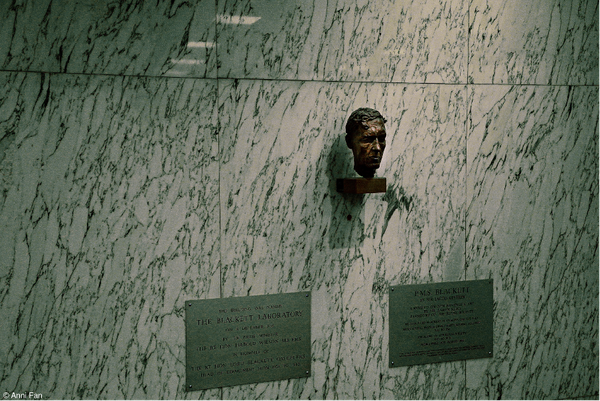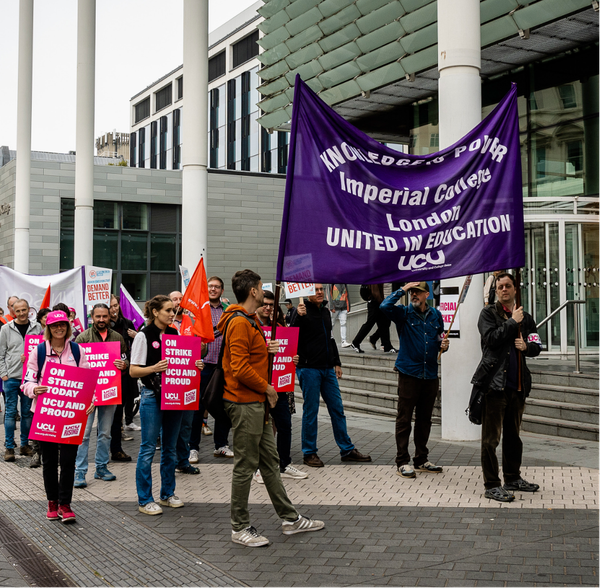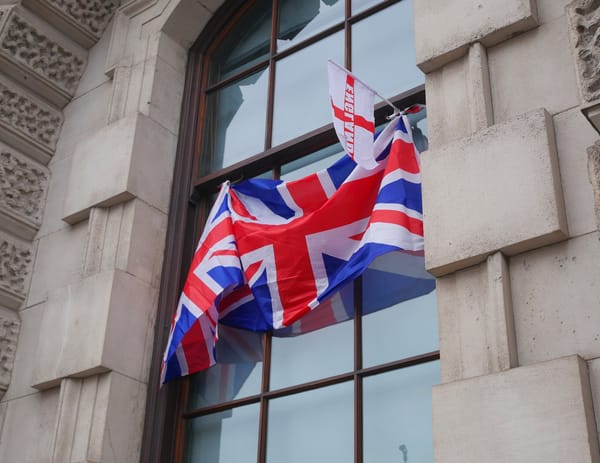‘We feel thrown to the wolves,’ Jewish and Israeli students tell College
Hugh Brady has responded to a letter from Jewish and Israeli societies that slated Imperial’s ‘ChatGPT’-like response to the Hamas attack.
Imperial College President Hugh Brady has responded to an open letter criticising Imperial’s response to the Israel-Gaza war. ‘We feel abandoned and thrown to the wolves,’ reads the letter, published by Jewish Society and Israeli Society.
‘On behalf of our entire leadership team I want to underline to you and all your members that antisemitism has no place at Imperial. Full stop.’
‘I will ensure we take swift action against it wherever and whenever we see it,’ wrote Brady in a private letter to the two societies on Tuesday morning.
Jewish Society and Israeli Society expressed gratitude towards the fact that Brady had written back to them. ‘Imperial’s response has been improving over time,’ said a representative of Jewish Society, speaking to Felix after seeing Brady’s letter. ‘But the bar was very low to start with.’
Brady reassured Jewish and Israeli students that ‘Your safety as part of Imperial’s community is of paramount importance for me and our wider leadership team.’ He urged them to ‘report hate speech, harassment or abuse to university management, or via our Report and Support tool.’
‘We will have to see how things change moving forward,’ said the Jewish Society representative. They pointed out that all of the support measures mentioned in Brady’s letter already existed, but that students feared reporting antisemitism for fear of being identified. ‘Imperial has already banned hate speech, but still these issues continue.’
The representative called on the College to describe Hamas as a terrorist group in communications to the wider student body – something it has yet to do. “Hamas is a designated terrorist group. Supporting them is illegal, and inciting any violent antisemitism is illegal. Several students and staff do need to be reminded of this.”
The original open letter describes the experience of Jewish students on campus. ‘Even in relatively peaceful time,’ it says, ‘Imperial Jewish and Israeli students feel fear on campus. They are scared to be openly Jewish and openly Israeli for fear of classmates and lecturers attacking them. They fear verbal repercussions, online harassment, discrimination, isolation and bullying. These fears are well founded, many students have reported antisemitism and racism on campus.’
Some Jewish students have described incidents in which they have received insensitive comments from their personal tutors. Felix is not sharing the details of these incidents in order to protect the identities of the students involved.
Others say that they feel unable to approach their tutors, pointing to their friends’ experiences and their tutors’ comments on public forums.
Jewish Society says that students feel isolated; since there are so few Jewish students at Imperial, they fear there will be no one to protect them if they are subject to antisemitic comments.
‘On behalf of our entire leadership team I want to underline to you and all your members that antisemitism has no place at Imperial. Full stop.’
Imperial’s changing rhetoric
Brady’s response is the most recent in a series of communications Imperial has sent on the war and the Hamas attack.
The first few of these drew criticism from Jewish and Israeli students. A tweet sent from Imperial’s X (formerly Twitter) account on 10th October, said that its ‘thoughts are with all those affected by the escalating violence in Israel and Gaza.’
The next day, Provost Ian Walmsley sent a letter to Imperial’s Jewish and Israeli societies, stating that ‘Our Imperial community stands as one against acts of violence and hatred,’ and expressing his shock at the ‘appalling violence in Israel and Gaza’
On the afternoon of Friday 13th, Jewish and Israeli Society sent an open letter to the College, at the same time as a series of other letters from staff, students and alumni.
’We do not understand… why Imperial hasn’t condemned [Hamas’s] heinous acts,’ they wrote, expressing dismay that Imperial had made no mention of the proscribed terrorist group. ‘We feel shocked that these atrocities have been so heavily downplayed.’
Referring to the College’s response thus far, they said: ‘Vague, non-commitment that could have been written by ChatGPT is an affront to our dignity’.
The letter ended with a call for the College to meet with Jewish and Israeli students to discuss how best it could support them.
Hours after the open letter was published, Imperial President Hugh Brady sent a statement to all College members, saying, ‘This week’s terrible attacks by Hamas against Israel and the escalation of violence in Gaza have been truly shocking.’
Referring to the College’s response thus far, they said: ‘Vague, non-commitment that could have been written by ChatGPT is an affront to our dignity’.
What happened in Israel and Gaza?
This section contains details some readers may find distressing.
In the early hours of Saturday 7th October, Hamas, the proscribed terrorist group governing the Gaza strip, launched a surprise attack on Israel. Thousands of rockets were fired, and Hamas militants breached the Gaza-Irael barrier, massacring at least 1,400 civilians and soldiers, and taking hundreds hostage. Videos posted by Hamas on social media show that Israeli victims were set alight, dismembered, beheaded, and raped.
Israel retaliated swiftly, pounding the Gaza strip with its own airstrikes. As of 15th October, Israel’s strikes are estimated to have killed at least 2,670 people, and injured thousands more. Hundreds of thousands of Palestinians have been forced to evacuate northern Gaza, and Israel has imposed a total blockade on the strip, preventing the entry of food, water, electricity, and water. These developments have exacerbated the existing humanitarian crisis in the region. Nearly half of the 1.3 million residents of Gaza are children.
UN human rights experts have condemned Hamas’s ‘deliberate and widespread killing of innocent civilians’ and Israel’s ‘indiscriminate military attacks against the already exhausted Palestinian people of Gaza’. They described the actions of both sides as war crimes.








